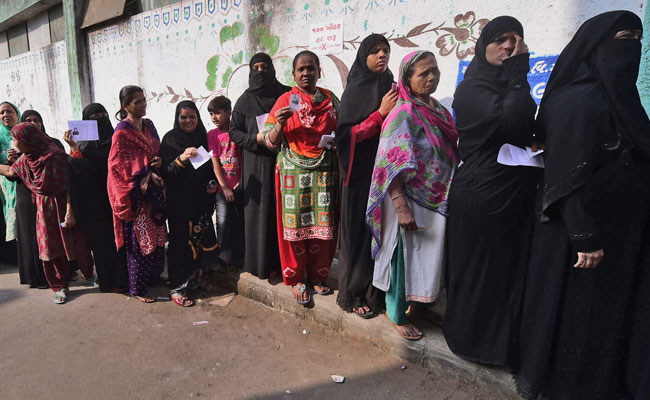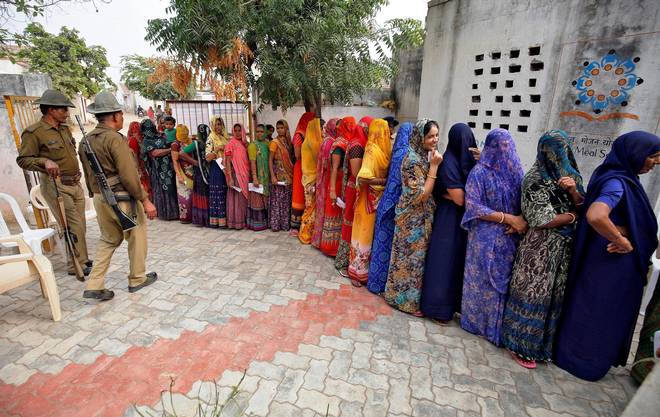
Among the political galleries of India there have been discussions about holding simultaneous elections for the state assemblies and the Lok Sabha every five years.
The momentum for this ambitious proposal was generated by the ruling Bhartiya Janta Party (BJP) and the Prime Minister himself. Last year, Mr Narendra modi while unveiling his “15 year vision document for new India” mooted the idea of simultaneous elections, which soon gained popularity among various leaders of the BJP and think tanks associated with it. Recently, on 29th January 2018 president Ram Nath Kovind while addressing the budget session of the Parliament put forward the same proposal. He said frequent polls impose a huge burden on human resources and hinder development due to the promulgation of the model code of conduct.
The idea of holding simultaneous elections is not new or alien to India. In 1951-52 the first general election was held together with the state assembly elections. The trend continued with the next three general elections of 1957, 1962 and 1967. In the year 1999 the idea was again discussed starting with the suggestions of the law commission but was dropped soon after.
Now the idea is being discussed by the ruling party which has a majority in the Parliament (lower house) and in more than half of the states. It means that the BJP has numbers in hand for converting the idea into reality. In a situation like this, the topic demands in-depth analysis, highlighting its pros and cons thoroughly.
The proponents of the simultaneous elections build their arguments on several grounds. They claim that one big election in place of various elections at regular intervals can ensure consistency, continuity and governance. They further argue that simultaneous elections can also be a means to curb corruption as it is no secret that elections are the biggest dumping grounds for black money.
The questions which are being raised by the BJP are not entirely wrong, but mistimed and misrepresented. It is true that lots of time, money and manpower is consumed by the continuous elections, which can be utilized in developmental activities. The model code of conduct disrupts the governance every time an election is announced. However, despite all these arguments, simultaneous elections are not the answer.
If continuity and consistency are the arguments for simultaneous elections, then what is wrong with Dictatorships? For the sake of argument one might say that Dictatorships and monarchy provide for hassle free and smooth governance because there will be absolutely no elections to hinder the course of development. But I believe no one will exchange a good dictatorship with a less good democracy. Democracy is not just about development and governance it’s about making people partners in the process of governance.
Despite all the pros and cons, the best thing about democracy is that it creates a sense of power in people’s mind which keeps refreshing at regular interval. Smaller the interval, the greater is the sense of power. Secondly, for the continuance of governance, India has the system of the permanent bureaucracy whose primary objective is ensuring smooth governance. Focus should be upon making bureaucracy more people friendly.
The flow of black money during the elections is the biggest concern for the election commission, but holding simultaneous polling is neither the only measure nor the right. It is like saying it’s better to have black money once rather than having it in several elections. If political parties, including the BJP are concerned about black money then first of all they should bring their funding and expenses under the right to information act. There are other measures like state funding of elections and putting a ceiling on party expenditure which should be implemented first.
However the most vehement rejection of the idea of simultaneous elections is coming from various state parties. They believe this idea goes against the spirit of federalism and the constitution. Their concern is important. There is the fear of the dominance of a single party and single agenda all over the country. India is one of the most diverse country in the world divided into 29 federal units called states. Each state has its own set of problems and political aspirations which cannot be addressed separately when there will be simultaneous elections. The politics of the country which has the second largest population in the world should be more inclusive. Earlier, when there were simultaneous elections, India was democratically very young and most of the different state parties which represent various political groups were unborn. Most importantly, what will happen if in one of the state, a situation like “hung assembly” will arise? Should president rule be imposed upon the people of that particular state for the rest of the period? This is against the ideals of democratic values. Further, there are empirical evidences (latest, Bihar and Delhi elections of 2015) which suggest that people tends to vote differently in general and state assembly elections, but if there will be simultaneous voting the local agenda could intermingle with the national one.
As the saying goes, one should learn to walk before running, there are several electoral reforms waiting in line before any political party should think about the simultaneous elections. Transparency in the funding of political parties, Decriminalization of politics, curb on paid news and prediction polls, stopping candidates contesting from more than one seat and most important the passage of the Women’s reservation bill. Implementing simultaneous elections before taking all these much awaited reforms into account will only be a symbolic change.
Faiz Ashraf has completed his Maters in political science from Jamia Millia Islamia, Delhi. Email: [email protected]











































